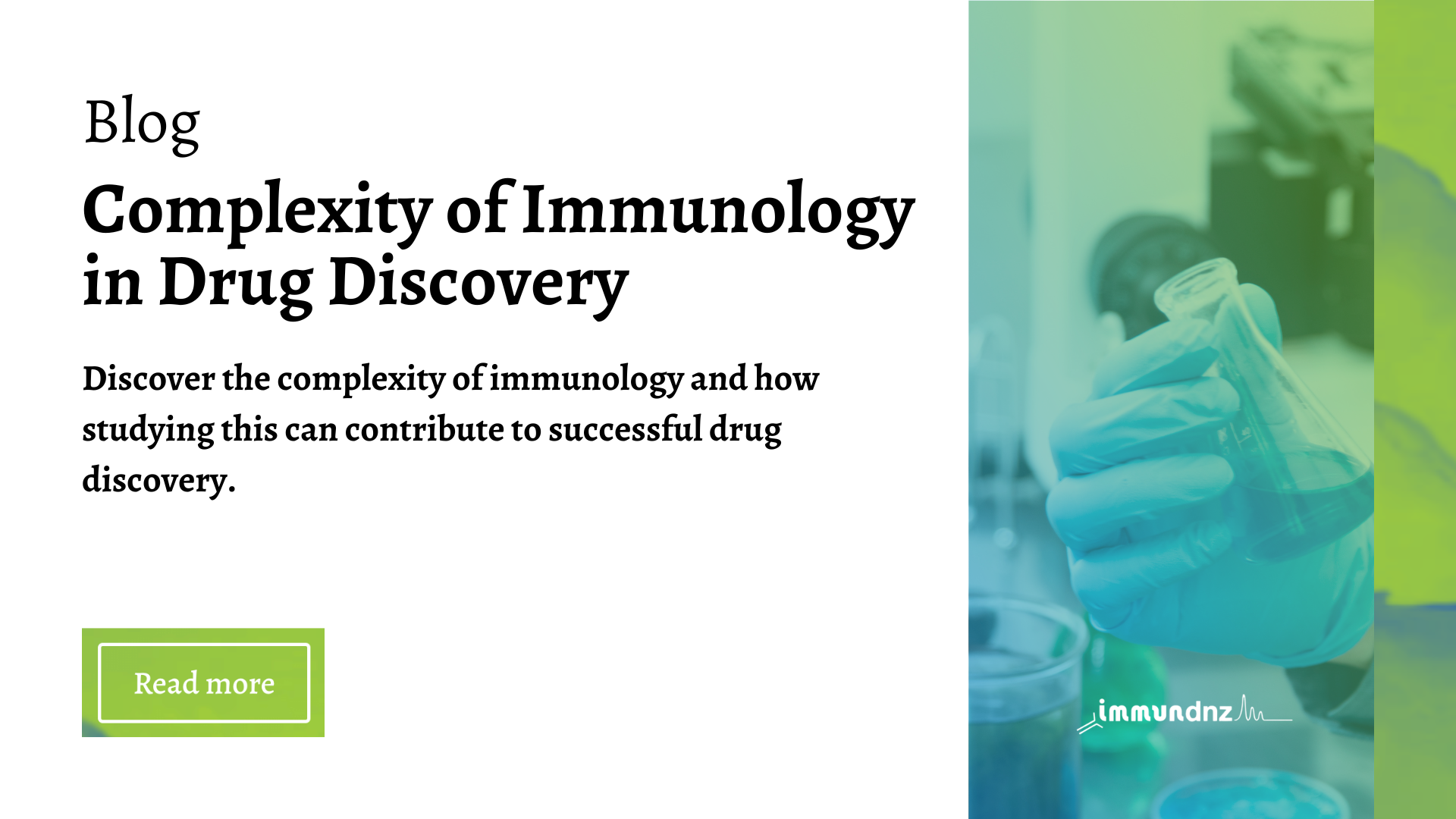Immunology stands at the forefront of modern medicine, offering a profound understanding of the intricate mechanisms governing our body’s defense against pathogens and diseases. In the realm of drug discovery, harnessing the power of immunology presents both unprecedented opportunities and formidable challenges. We will delve here into the multifaceted nature of immunology, exploring its complexities and the pivotal role it plays in shaping the landscape of drug development. This article sheds a light on the Complexity of Immunology in Drug Discovery.
The Dynamic Immune System
The immune system is a marvel of biological evolution, comprising a vast array of cells, molecules, and signaling pathways intricately orchestrated to protect the host organism. Central to its function are immune cells such as T cells, B cells, macrophages, and dendritic cells, each endowed with specialized roles in mounting immune responses. Furthermore, the immune system exhibits remarkable plasticity, capable of adapting its responses to diverse threats ranging from infectious agents to cancer cells.
Understanding Immunopathology
While the immune system is indispensable for maintaining health, dysregulation or malfunction can lead to immunopathologies, including autoimmune diseases, allergies, and immunodeficiencies. Unraveling the underlying mechanisms of these disorders requires a deep comprehension of immunological principles, from the delicate balance of immune checkpoints to the intricate interplay between pro-inflammatory and anti-inflammatory signals.
The Rise of Immunotherapy
In recent years, immunotherapy has emerged as a transformative approach in the treatment of cancer and autoimmune diseases. By leveraging the body’s immune system to target and eliminate diseased cells, immunotherapeutic interventions offer unprecedented efficacy and fewer side effects compared to conventional treatments. Key immunotherapeutic modalities include immune checkpoint inhibitors, chimeric antigen receptor (CAR) T-cell therapy, and therapeutic vaccines, each presenting unique challenges and opportunities in drug discovery.
Challenges in Target Identification
Identifying suitable targets for immunomodulatory drugs represents a formidable challenge in drug discovery. Unlike traditional small molecule drugs that target specific enzymes or receptors, immunotherapeutics often act on complex immune pathways with multiple checkpoints and regulatory mechanisms. Moreover, the heterogeneity of immune cells and the dynamic nature of immune responses pose significant hurdles in pinpointing druggable targets with sufficient specificity and efficacy.
Navigating the Tumor Microenvironment
In the context of cancer immunotherapy, the tumor microenvironment presents a complex milieu shaped by intricate interactions between malignant cells, immune cells, and stromal components. Tumors employ a variety of immune evasion strategies, including upregulation of immune checkpoint molecules, recruitment of immunosuppressive cells, and induction of tolerance mechanisms. Overcoming these immunosuppressive barriers requires innovative therapeutic approaches that target not only cancer cells but also the immunosuppressive microenvironment.
Personalised Medicine and Biomarker Discovery
The era of personalized medicine heralds a paradigm shift in drug discovery, with immunological biomarkers playing a central role in patient stratification and treatment selection. Biomarkers such as tumor mutational burden, PD-L1 expression, and immune cell infiltration provide valuable insights into the dynamic interplay between the immune system and the tumor microenvironment. However, identifying robust biomarkers with predictive power remains a formidable challenge, requiring comprehensive molecular profiling and validation in large clinical cohorts.
Harnessing the Power of Artificial Intelligence
In the quest to unravel the complexities of immunology and expedite drug discovery, artificial intelligence (AI) has emerged as a powerful tool. Machine learning algorithms can analyze vast amounts of genomic, proteomic, and clinical data to identify novel immunological targets, predict treatment responses, and optimize therapeutic strategies. Moreover, AI-driven approaches enable the design of synthetic peptides, antibodies, and small molecules with enhanced immunomodulatory properties, revolutionizing the drug discovery process.
Conclusion
Immunology represents a fascinating frontier in drug discovery, offering unprecedented opportunities to combat infectious diseases, cancer, and autoimmune disorders. However, navigating the complexities of the immune system requires a multidisciplinary approach integrating cutting-edge technologies, innovative therapeutics, and a deep understanding of immunological principles. By embracing the challenges posed by immunology, researchers can unlock new avenues for therapeutic intervention and revolutionize the future of medicine.


